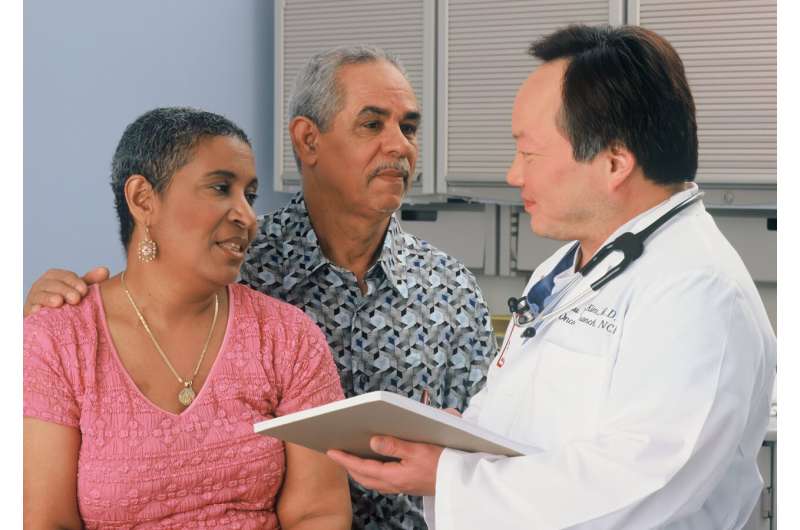Improving post-stroke recovery conversations

Conversations with stroke survivors and their loved ones about possible lasting impairment can be traumatic, but there's also potential for them to be therapeutic, according to research from The University of Queensland.
Ph.D. candidate Bonnie Cheng from UQ's School of Health and Rehabilitation Sciences said prognosis conversations can trigger mixed emotions of hope and grief, so it's important to know how people would prefer for them to happen.
"When stroke is encountered for the first time, it's hard to know what's important and relevant to ask about, especially during that time of crisis immediately after such a serious health event," Ms Cheng said.
"During this time, there's also an immense sense of gratitude for the survival of their loved one that seems to stop significant others from asking for more information.
"Conversations about prognosis and lasting impairments, like speech difficulties, need to be an ongoing dialog between health professionals, the patient, and their support network.
"It's important for these conversations to be based on a mutual understanding of what improvements are personally meaningful to the patient and their significant others."
A common lasting condition is aphasia—a language impairment diagnosed in one-in-three people after a stroke.
The research team interviewed people who identified as a significant other of someone with aphasia between three and 12 months after stroke, including spouses, close friends, adult children and parents of someone with aphasia.
"In the interviews, we talked in-depth about their experience of finding out about the prognosis for aphasia, the impact these experiences had on them, and how they would want to get information about prognosis in a perfect world," Ms Cheng said.
"What we found was significant others need to be included in prognosis conversations so that they too can be informed and supported, alongside the patient.
"The prognosis of aphasia is a sensitive issue to address because it often involves having to adjust to long-term difficulties and changes.
"Recovery needs to be looked at holistically in terms of everyday activities that affect the individual, rather than just scores on a language impairment test.
"Even though we can't yet 'cure' aphasia, this research brings us one step closer to talking about recovery in a way that's as informative and as compassionate as possible, so that people living with aphasia can be supported to live successfully with the condition."
The study is published in the American Journal of Speech-Language Pathology.
More information: Bonnie B. Y. Cheng et al, Prognostication in Poststroke Aphasia: Perspectives of Significant Others of People With Aphasia on Receiving Information About Recovery, American Journal of Speech-Language Pathology (2022). DOI: 10.1044/2021_AJSLP-21-00170
















